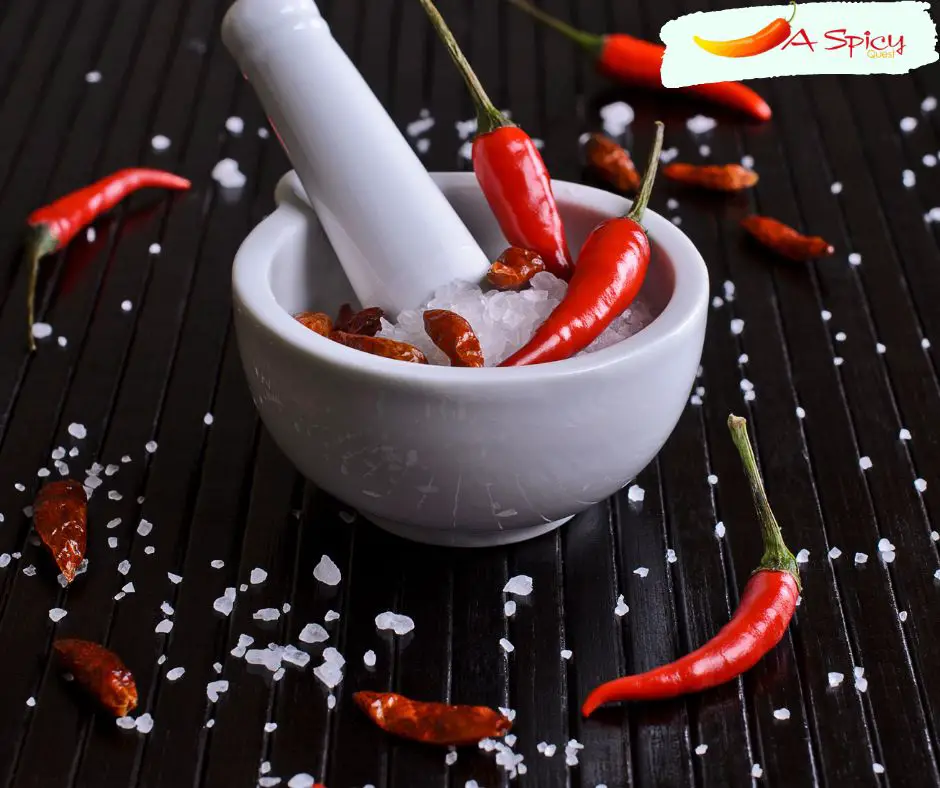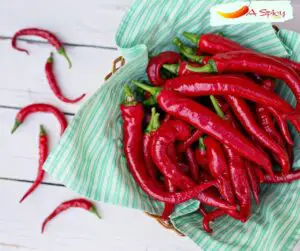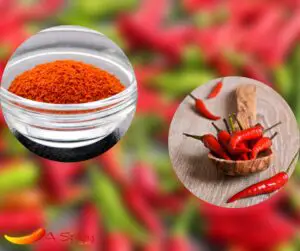
Cayenne pepper has been touted as a cure-all for decades. From relieving heartburn to enhancing your blood circulation, this is an ingredient that will assist you in losing weight and feeling better overall. Many people have also been asking about its effect on autoimmune diseases. Therefore, we have shed some light on the subject. So, does Cayenne pepper get rid of autoimmune viruses?
No, it does not get rid of autoimmune viruses. Rather, through a study, it has been depicted that cayenne pepper has antibacterial properties. Capsaicin handles the spiciness of this fruit and its extract can treat various health conditions, like inflammation and pain.
There are several claims on the internet about the benefits of cayenne pepper for autoimmune diseases but unfortunately, there are no scientific pieces of evidence to support these claims yet.
About Cayenne Pepper

Cayenne pepper is made from the dried, ripe fruit of Capsicum annuum, which are small peppers. They are usually red, but can also be orange or yellow. Cayenne peppers are long, thin, and have a pointed tip. They have a mild capsaicin taste that can be spicy with a little heat at the end. The heat of cayenne comes from its active ingredient capsaicin, which is also found in chili peppers.
They commonly used cayenne pepper as a spice to add spice to food and to relieve symptoms of colds and flu. It also has antibacterial properties that can help reduce inflammation and fight infection.
We have used cayenne pepper for centuries in cooking. Today, it is used as an ingredient in many spicy dishes from around the world. It can add heat to soups and sauces or be added directly to your food for a spicy flavor.
Health Benefits of Cayenne Pepper
Cayenne pepper has been used for centuries for its health benefits. It can be used to treat a wide variety of illnesses and conditions. Other benefits of cayenne pepper include:
1. Helps Reduce Pain Caused by Osteoarthritis, Rheumatoid Arthritis, or Gout
Capsaicin causes the body to release pain-relieving endorphins, which are the body’s natural opiates. This effect makes cayenne pepper an effective treatment for chronic pain from conditions such as osteoarthritis or rheumatoid arthritis (RA).
2. Improves Circulation by Dilating Blood Vessels
Cayenne pepper helps improve circulation by dilating blood vessels, which improves the oxygenation of tissues throughout the body and lowers blood pressure by increasing heart rate (which also speeds up metabolism).
3. Supports Respiratory Health
Respiratory tract infections are one of the most common health conditions that can affect people of all ages. Cayenne pepper helps to relieve symptoms such as a sore throat, coughing, and wheezing by improving circulation in the respiratory tract and opening up airways.
Cayenne pepper can help clear up congestion and support respiratory health in several ways. It can soothe coughs by reducing irritation in the throat, which helps open up airways and ease breathing. It also helps thin mucus, so it drains more easily out of your body during coughing fits.
4. Reduces Symptoms of Colds and Flu
Colds and influenza are two of the most common respiratory illnesses contracted by humans around the world every year. They cause fever, fatigue, and other symptoms that make life difficult for those who have them. Cayenne pepper is effective at reducing these symptoms.
It opens up airways, allowing more oxygen into your body, which helps you get better faster. Cayenne pepper may help reduce inflammation caused by viruses like colds or flu, which can make symptoms like congestion and sore throats worse. This makes it one of the most effective home remedies for colds and flu available to store shelves today.
Cayenne Pepper Diet Tips
The following are some dietary tips for consuming cayenne pepper:
Add It to Your Food
We can add cayenne pepper to almost any cooked or raw dish to add flavor and spice. Use cayenne pepper when cooking instead of salt or other spices. If you’re not used to eating spicy foods, start by adding just one pinch at a time until your taste buds adjust. Once they do, start adding more until you reach your desired level of spice. Add cayenne pepper to healthy meals instead of unhealthy ones like fried chicken wings or pizza. It will fill you up without filling out your waistline as those other choices might.
Use It as A Condiment
They often use cayenne pepper as a condiment on foods such as sandwiches and burgers. It can also be added to soups, salads, and sauces.
Mix It with Other Spices
Cayenne pepper can be combined with other spices such as paprika, basil, oregano, and rosemary for additional flavor.
Consume in Small Doses
The best way to consume cayenne pepper is raw in small doses or cooked into dishes that you don’t mind having extra spice in them (such as salsa). You can also use crushed powder in place of salt for a kick of flavor in any dish.
Consume in Capsules
Cayenne pepper can also be taken in capsules or mixed with water and consumed as an infusion (tea). The typical dose ranges from 1 to 8 teaspoons up to half a teaspoon per day.
Is Cayenne Pepper Good for Immunity?
Yes, cayenne pepper is good for immunity. It contains a compound called capsaicin, which has been shown to boost the immune system in humans and animals. Cayenne pepper is an excellent source of vitamin C, which helps to boost your immune system.
Vitamin C also helps to build collagen, which is necessary to maintain the strength of your skin and bones. Capsaicin also has antibacterial, antiviral, and antifungal properties that can help fight off colds, flu, and other illnesses.
How does it work?
Cayenne pepper works by stimulating circulation in the body, which helps keep your blood flowing freely. This allows your immune system to do its job more effectively at fighting off infection-causing bacteria and viruses so you stay healthier longer.
Take Away
Curing autoimmune viruses is obviously too much to ask for, but what Cayenne Pepper can do is reduce infection, inflammation, and pain. It can help with recovery from an active virus.







